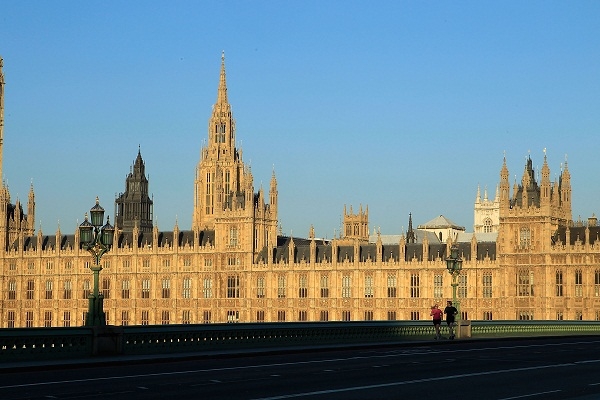As James says, the prisoner votes row will return to parliament before lunch today. The government is expected to offer the Commons three choices:
- The retention of the blanket ban, in defiance of the European Court of Human Rights (ECtHR)
- Enfranchising prisoners serving up to six months.
- Enfranchising those serving up to four years.
Parliament is expected to vote for retention, as it has done so previously. Such an outcome would, obviously, set the UK government on a collision course with the ECtHR and leave it open to very costly compensation suits. Damages of around £1,000 per case have been awarded in other jurisdictions, and leaked documents published last year showed that the government’s lawyers estimate the cost of compensation suits could exceed £140 million. That’s a high price to pay for asserting parliamentary sovereignty, but perhaps a worthwhile one if you believe that parliament is morally right on this issue.
The question, though, is what happens beyond the parliamentary vote and the threat of compensation. Many on the right believe that an impasse will have been reached and that Britain will have to leave the court’s jurisdiction. Nick Herbert MP makes this point in an interview with James Forsyth in the new issue of the magazine, and he will give a speech to Policy Exchange next week to explain how withdrawal might be achieved without damaging the UK.
Withdrawing membership of the ECtHR is a complicated business because many of Britain’s international obligations, particularly those related to the UN, are based on our having incorporated the European Convention on Human Rights into domestic law and our subscription to other international human rights conventions. Subsection three of this article in the European Journal of International Law goes some way to illustrating how complicated the situation is (and how uncertain lawyers generally are about the related academic questions). In addition to the conventions and declarations of which most us have heard, we have to consider the International Covenant for Civil and Political Rights (1966), the Convention on the Rights of the Child, the Covenant on the Elimination of all forms of Discrimination Against Women, the International Covenant on Economic, Social and Cultural Rights, the International Convention on the Elimination of all forms of Racial Discrimination. And there are almost certainly more.
In many ways, the proliferation of international law reveals how powerful executive bodies have become in recent years; and, indeed, how inscrutably remote they are from representative institutions. The legal complexities associated with the enormous growth in international government are extremely hard to grasp and explain without substantial legal training and practice experience (I’ve tried my best dear readers!). From the layman’s perspective, though, there is an absurd irony, worthy of Evelyn Waugh, in well-intentioned human beings having gone to such lengths to protect rights that the recipients cannot even understand and even resent.
Unpicking this is going to be fearsomely difficult for parliamentarians, whose time is already hard-pressed; but that is not a reason to ignore an important democratic and legal question, and once which extends far beyond the matter of prisoner voting.
PS: In the comments below, Jedediah says that Britain should merely ignore the court and refuse to pay its fines. That is, of course, an option; but it would create a precedent where the government can break its own laws (which it had to force through parliament to put on the statute book in the first place) solely on grounds that it didn’t like the unintended consequences of its own policy. I think that is a dangerous precedent, most of all because it further limits the sovereignty and independence of the UK parliament, further divorcing voters from their rulers. And perhaps it might allow the government to ignore judicial oversight of its affairs, which is potentially unpalatable. Philosophically, I think the only options are compliance or withdrawal; but it’s very uncertain territory, which leads me to conclude that there must be more debate on these questions.






Comments